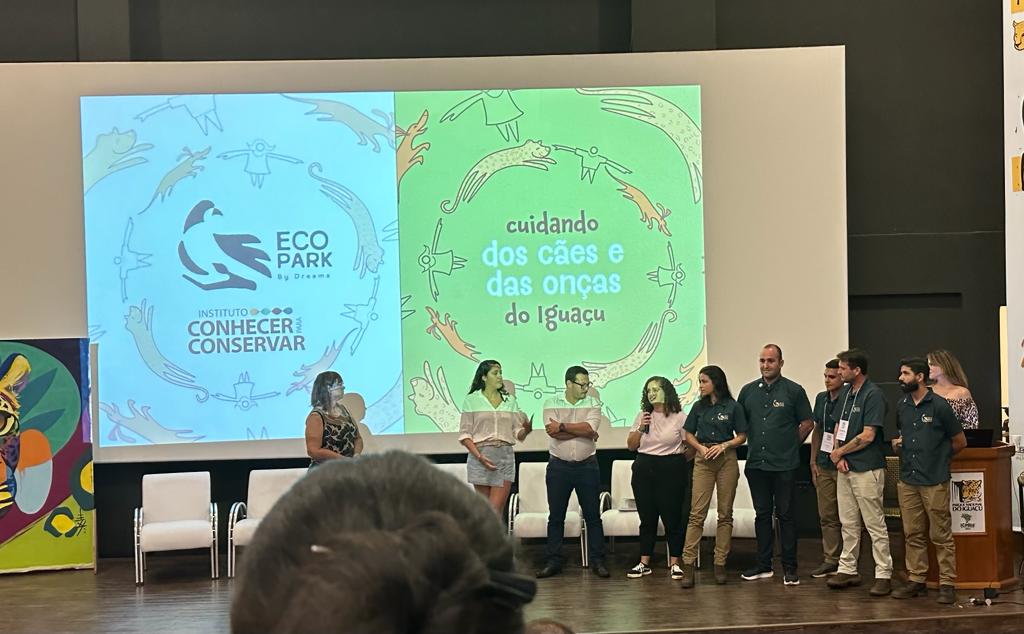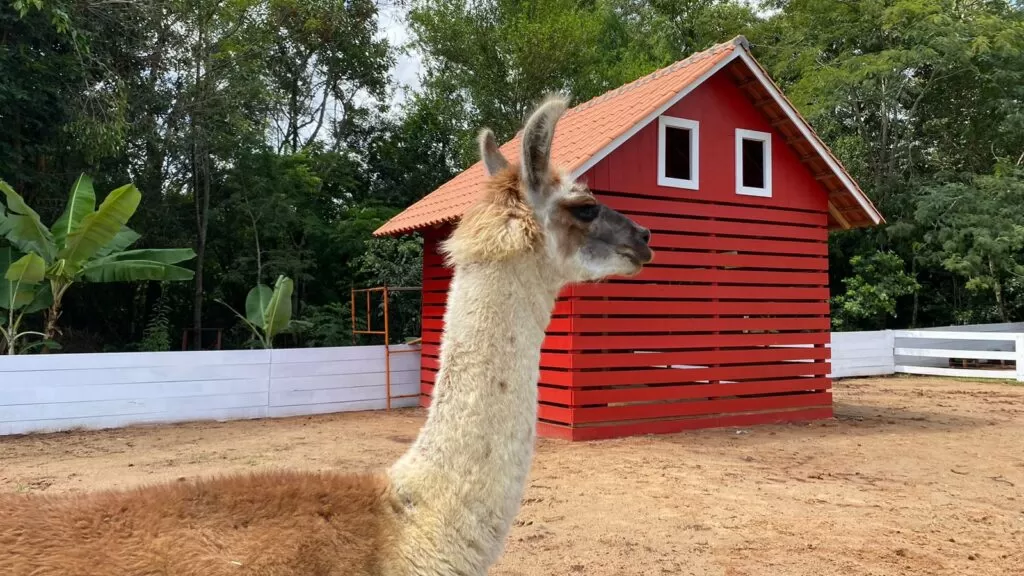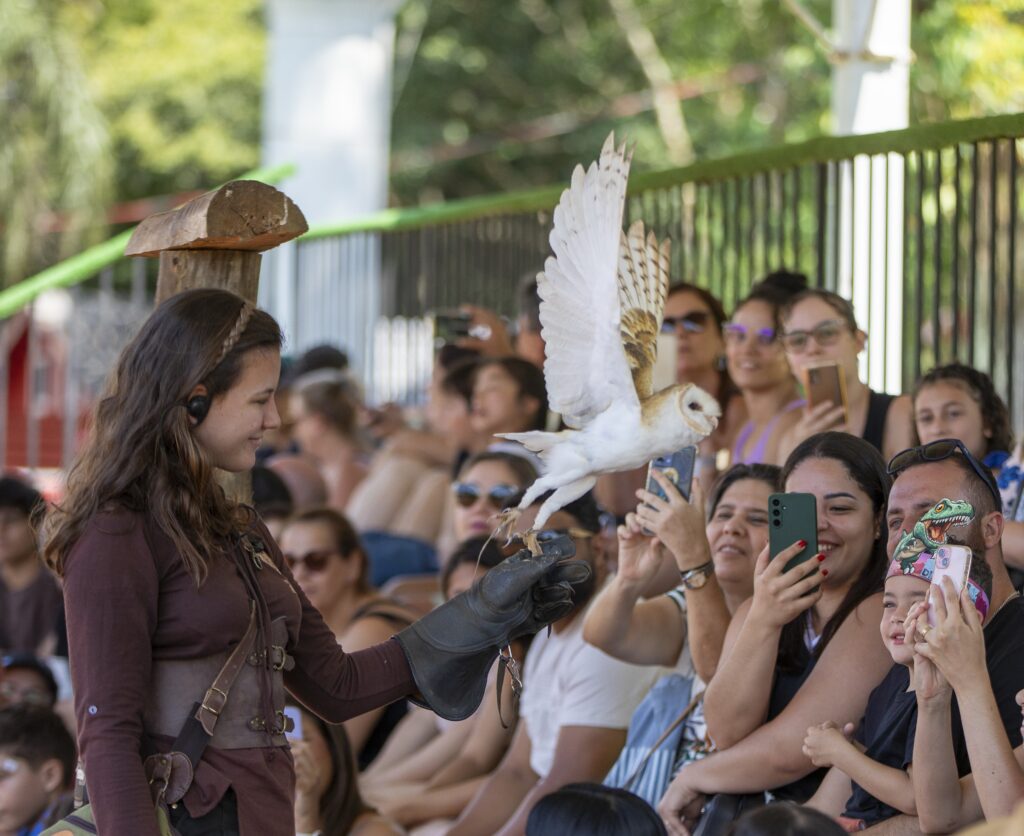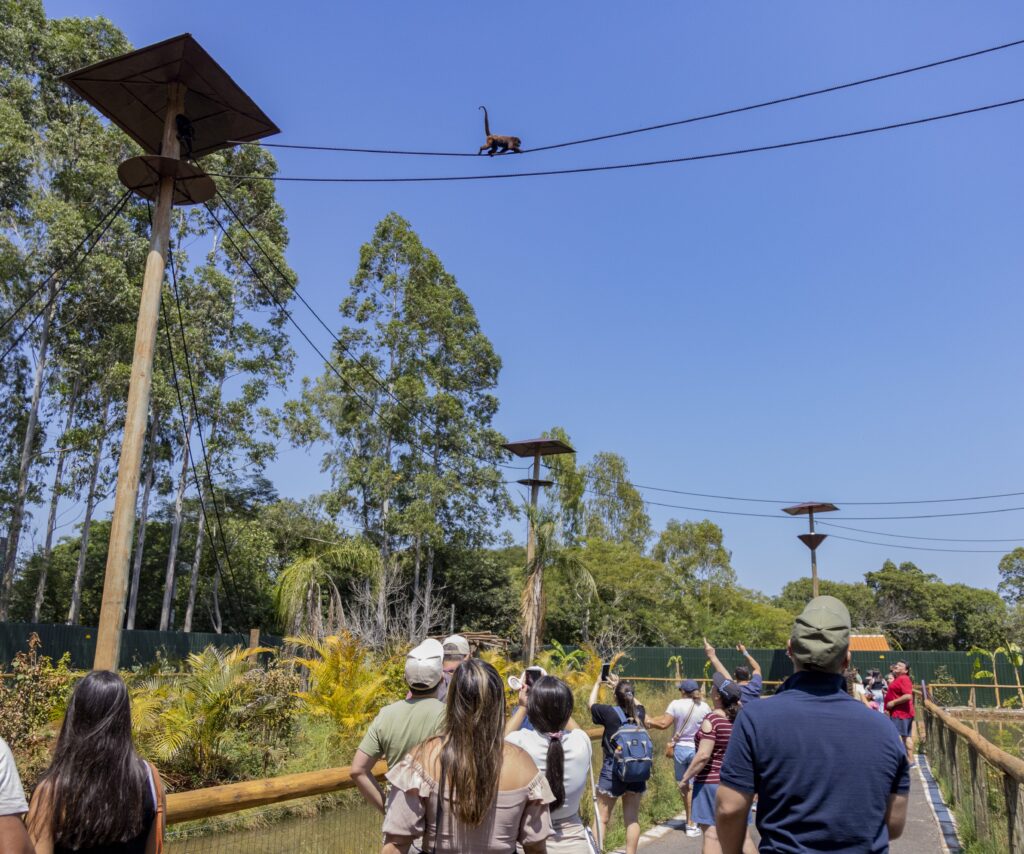The Onça do Iguaçu project, with the support of Eco Park and other partners, has launched the book "Caring for the Dogs and Jaguars of Iguaçu". The book was presented to the public during the Onça Festival and will begin to be distributed in the municipalities bordering the Iguaçu National Park (PNI) in the coming weeks.
The launch was also attended by actress Cristiana Oliveira, who played the character Juma in the soap opera Pantanal (1990) and is the species' ambassador in Brazil.
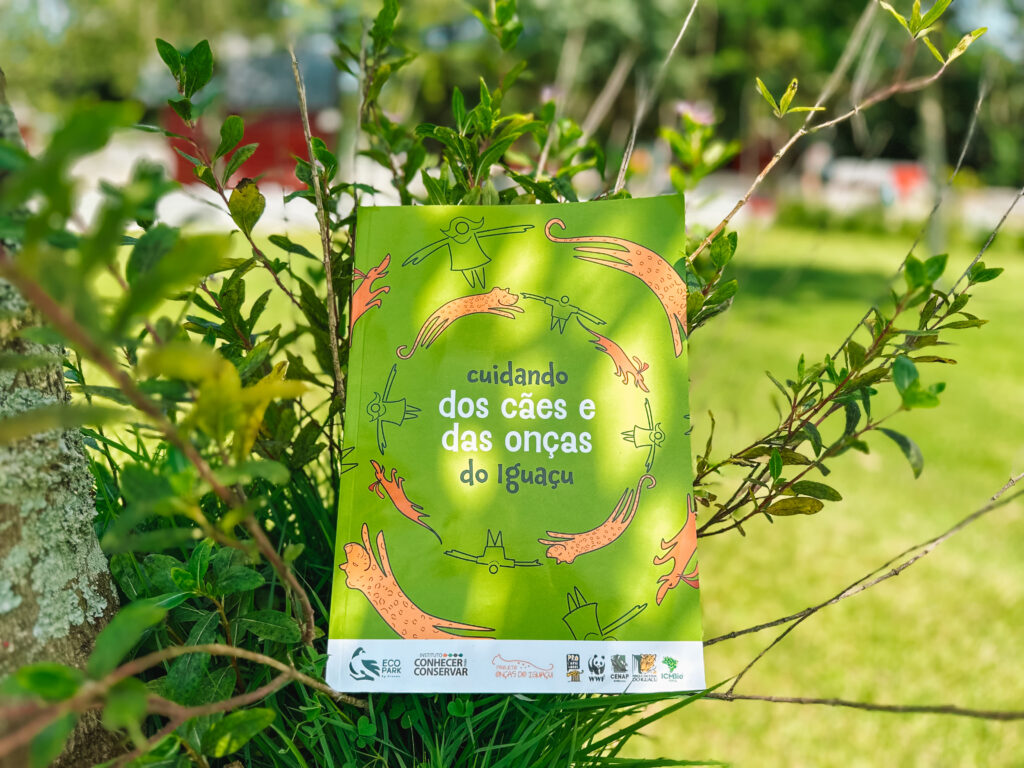
The book
In light and illustrative language, the book provides guidance on responsible dog ownership, as well as notions of animal welfare, vaccination and the most common diseases such as rabies, hepatitis, distemper and the proper handling of pregnant females in rural areas.
Caring for Dogs and Iguassu Jaguars" also addresses the relationship between dogs and jaguars and how the lack of care for domestic dogs harms the felines.
According to surveys, 40% of jaguars in Mato Grosso do Sul have had contact with the distemper virus, which is transmitted by dogs and can lead to death.
The book will be distributed to the population of the municipalities bordering the Iguaçu National Park as part of the CÃOSERVAÇÃO program, the aim of which is to understand the current demographic and health scenario of domestic dogs on the properties surrounding the PNI, identifying the possible transmission of etiological agents that could have an impact on wild carnivores and acting to prevent this impact.
According to Igor Morais, Eco Park's institutional coordinator, the unit supported the printing of the book because it believes it is important to sustainably balance the health of people, domestic animals and local wildlife. This is in line with Eco Park's purpose of telling the story and strengthening humanity's relationship with animals.
Morais pointed out that there is all this concern because the jaguar now occupies only 2.8% of its original distribution in the Atlantic Forest. By way of comparison, 61% of the Brazilian population, more than 145 million people, live within this biome. In other words, the jaguar, queen of the forests in South America, has lost its position to human beings.
"It is not in Eco Park's plans to manage or house jaguars. However, the institution believes it is impossible to build a better world without these huge golden eyes in the Atlantic Forest."
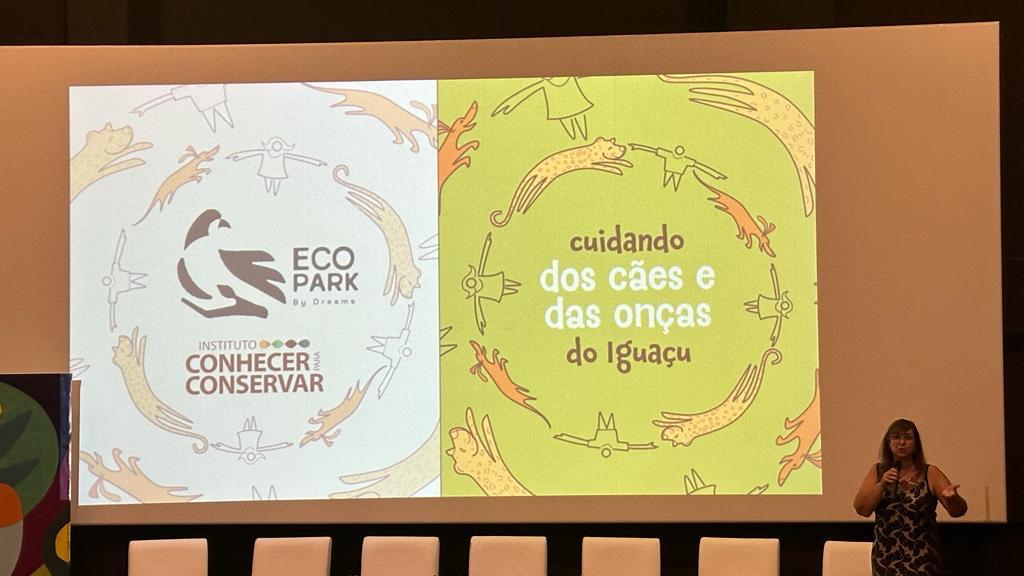
Scratching the Future
Eco Park is also a partner of Onças do Iguaçu in the Ciscando o Futuro project, with the mission of caring for the 93 jaguars that live on the border between the state of Paraná and Argentina.
One of the biggest threats to these cats is hunting in retaliation for attacks on domestic livestock on farms, ranches or country estates.
Ciscando o Futuro" is building jaguar-proof chicken coops and adding value to the products made on these properties, which can be sold under the "Friends of the Jaguar" label.
The program's first chicken coop was inaugurated in November in Matelândia.
"But this alone is not enough to guarantee the future of the largest feline in the Americas. Its survival depends first and foremost on people caring. At least 1,500 jaguars are killed every year in South America. Sometimes just for being jaguars, out of sheer fear. In comparison, only four jaguar attacks on people have been recorded in the whole of South America since Europeans arrived 500 years ago," he added.
"We really want people to see jaguars through our eyes, because they are full of love. We hope that our passion can infect everyone, and that this world will have more and more jaguar lovers," said Yara Barros, coordinator of Onças do Iguaçu.
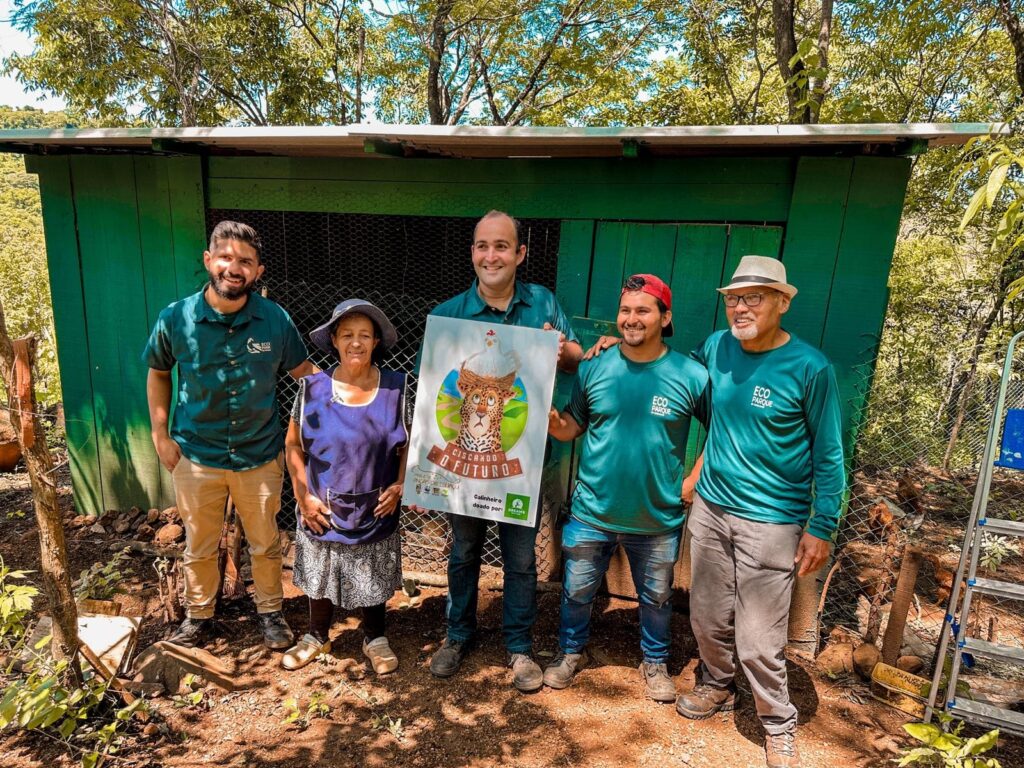
The Eco Park
The Eco Park tour includes a visit to a farm with domestic animals and an immersion nursery that has been a new home for birds and reptiles that have suffered at human hands due to mistreatment.
You can also watch exercise demonstrations by the Creole horse, a typical Brazilian breed, and the flight of the birds of prey, the only one of its kind in South America so far. The flight of the birds of prey takes place every day at 10.30am and 4pm.
Residents of Foz do Iguaçu pay R$15. To do so, you need to show a photo ID and proof of residence.
Children under six get in free.
Tickets can be purchased on the website: www.dreamsecopark.com.br. The park is open from 9 a.m. to 5:30 p.m.

